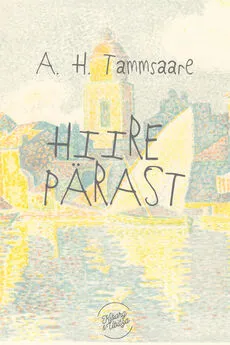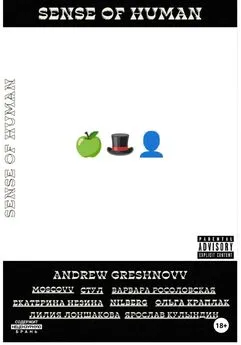David Steindl-Rast - Words of Common Sense
- Название:Words of Common Sense
- Автор:
- Жанр:
- Издательство:Templeton Foundation Press
- Год:2002
- Город:Philadelphia London
- ISBN:1-932031-43-X
- Рейтинг:
- Избранное:Добавить в избранное
-
Отзывы:
-
Ваша оценка:
David Steindl-Rast - Words of Common Sense краткое содержание
Words of Common Sense - читать онлайн бесплатно полную версию (весь текст целиком)
Интервал:
Закладка:
It is a gift to meet people who are fluent in the language of common sense. I remember one of them from my childhood: our hunchback neighbor, Frau Schliffsteiner. She certainly could talk to cattle; she could talk to goats and dogs and cats, to pigeons and sparrows, to toads and to the potted geranium plants on her windowsill, to the seedlings in her garden bed. Above all, she could talk to people of any kind — from the village bum to the schoolmaster of our two-room school (and he
The bullfrog knows more about rain than the almanac.
— AFRICAN AMERICAN
Some smart folks can’t tell a rotten rail without sitting on it.
— AFRICAN AMERICAN
One pound of learning requires ten pounds of common sense to apply it.
— PERSIAN
A mole may instruct a philosopher in the art of digging.
— CHINESE
was far above everyone; he could even play the piano). In her simplicity, she treated all people as family members, and her family quite naturally included the animals and plants. She seemed to know their secrets. She knew which herbs made the right tea against a bellyache and which leaves made your finger heal quickly when you had cut yourself. In olden times, they might have called her a witch, but surely she was a good witch — and a sensible one.
Her neighbors would sip coffee with her and talk and talk about all that weighed on their hearts and minds.They always felt lighter afterwards — and it wasn’t because of her coffee; that was a sorry brew out of the few coffee beans she could afford.What she gave to those who came to her was a sense of belonging: she let them breathe the healing air of common sense. After all, healing on any level — mind, body, soul, spirit— is, as a Tamil proverb puts it, “Medicine one-fourth, common sense three-fourth.”
Common sense brings about healing because it is more than a way of thinking; it is a way of living, a way of acting, a way of doing what makes sense — of doing it spontaneously, unselfconsciously, effortlessly.You experience a glimpse of this when you “hit the sweet spot” in jogging, typing, dancing, or whatever the activity may be: suddenly you are “in the flow” and everything happens smoothly in the right way and at the right moment. Now imagine being able to stay “in the flow,” to maintain this attitude of self-forgetful spontaneity.Wouldn’t the vigor and ease of “the sweet spot” continually keep your spirit aglow, your soul at peace, your mind alert, and your body healthy? Few may be able to attain so high a goal, but all of us can strive for it.
A lifetime may not be long enough to attune ourselves fully to the harmony of the universe. But just to become aware that we can resonate with it — that alone can be like waking up from a dream. At the dawn of Western thought, the Greek philosopher Heraclitus recognized this: “The waking have one world in common,” he wrote, “sleepers have each a private world of their own. We should not act or speak as if we were asleep.” The African Bantu say it with more zest in a proverb: “There are forty kinds of lunacy, but only one kind of common sense.”
“Although the Logos is common to all, most people live as if they had each their own private intelligence,” Heraclitus lamented. And he added: “We should let ourselves be guided by what is common to all.” Lao Tsu used the word Tao for this guiding principle “that brings the people of the world into harmony of heart.” We need our own term and we do have an excellent English phrase for it: common sense — the inner guidance we have in common with all and that alone enables us to act in ways that make sense.
One hand washes the other.
— ANCIENT ROMAN
One finger can’t catch fleas.
— AFRICAN AMERICAN
One hand can’t tie a bundle.
— BASA
Proverbs and Common Sense
Like slick fish, proverbs have managed to slide through the nets of scholars who set out to catch them in a definition. One thing is certain, however: A proverb is a common saying that makes eminent sense to those who use it. The natural habitat of proverbs is in the waters of common sense. They swim with equal ease in the different strata of a given society: “Whoever has a proverb is worthy of attention,” the Chinese say, “be it a mandarin or a coolie.” They are common to far distant geographic areas, migrating from country to country and from language to language. Not even the waterfalls that separate period from period in history can stop proverbs, and some of them have remained common throughout vastly different eras, retaining their wiggling vitality for thousands of years.
More than two thousand years ago, the Roman scholar Varro wrote, “Non omnes, qui habent citharam, sunt citharaoes” (They are not all harpists who own a harp). He may have created a proverb, or — more likely — recorded one that was already an old saw. At any rate, through Varro it became popular, and its popularity was still so strong a thousand years later that many new proverbs were created on its pattern. “They are not all hunters who blow horns.” “They are not all cooks who carry long knives.” And, “They are not all friends who laugh at you.” The Dutch people were particularly fond of this last one (“Zijn niet alle frienden, die hem toelachen”) and seemed to have brought it to the West Indies. There it survives today— another thousand years later — in an African American version: “They are not all friends who grin showing their teeth.” Other proverbs have had a long life, too. Some fifteen hundred years ago, Plutarch had already quoted, “The wearer knows best where the shoe pinches.” His contemporary, St. Jerome, called “Don’t look a gift horse in the mouth!” an old saw. He had fished it up from the vernacular, the language of common people, the language into which he was translating the Bible.
When it comes to proverbs, I am a passionate fisherman. Since the waters of common sense flow in every part of the world, we may be lucky and catch the same proverb in streams thousands of miles apart — or rather, find the same insight turned into a proverb by an altogether different culture. In New York, they say “Every family has a skeleton in the closet.” In the West Indies, it becomes “Every house have him dirty corner,” and in the southern United States, “Every cabin has its mosquito.” For the Haya in East Africa, it is “Every hill has its leopard,” and the Jabo give a special twist to that skeleton in the closet: “Chicken says, ‘If you scratch too hard, you come upon the bones of your mother.’”To find the same with a difference is always a thrill.
Even within the same culture, you may find a delightful variety of images to get the same idea across. Which of these four proverbs would you choose to tell someone “You had it coming”? “If you won’t stand blow, no play with stick.” “One that carries straw mustn’t fool with fire.” “If you lay with the puppy, you get bitten by the fleas.” “One who swims with fish must eat worms.” All four of them come out of African American
If fool no go market, bad something never sell.
— AFRICAN AMERICAN
One eye is enough for the merchant, but the buyer needs a hundred.
— BASQUE
There are more foolish buyers than sellers.
— BELGIAN
culture with its colorful imagery. There is no better way for coming to know a given culture than to savor its oral tradition of proverbs. Unfortunately, the media tend to make language sterile and proverbs are becoming an endangered species.
In the Austria of my childhood, everyone seemed to agree with the Basque proverb “Old words: wise words,” or with the English, “All good sense of the world runs into proverbs.” Besides, as the Arabs know, “A proverb is to speech what salt is to food.” Cicero had already spoken of “salting” his elegant Latin prose with proverbs, and my Great Aunt Jenny, who liked lots of salt on her potatoes, salted the advice she gave us children with proverbs too.The mailman, the gypsies, and the tinker who came to the door used proverbs. So did the pastor, the butcher, and above all our tutor. None of them knew that unimaginably far away, in the Sudan, the Ojai said, “For every occasion there is a proverb.” But they would all have agreed that proverbs were “the wisdom of the common people.” Everyone believed in the proverb of all proverbs, which was still current among us in its Latin form, “Vox populi, vox Dei” (“The voice of the people: God’s voice”).
Not always, however, does the voice of the people rise from the depths we all have in common. Some proverbs spring rather from provincial prejudice. Every country tends to put mocking labels on its neighbors and often does so in proverbs. One of them has even found its way into the Bible, “Cretans: always liars” (Titus 1:12). Village may taunt village in proverbs, handing on prejudice from generation to generation and perpetuating discord. There are also proverbs that taunt certain professions, say tailors for cheating—“A tailor cuts three sleeves for every gown”—or physicians for malpractice—“ Only a doctor can kill you and go scot-free.” Prejudice may also target physical traits or women. “Never trust a red beard.” “Get near women: get near trouble.” Or worse, “Women are the snares of Satan.” Fortunately, these narrow-minded proverbs are vastly outnumbered by those which speak for the entire human community. Surprisingly often, proverbs do spring from that depth in which all communicate with all and with the divine source of all. Then we can truly hear in this voice of the people overtones of a divine voice.
For a long time now, I have been collecting proverbs, not only for their content, but also for sheer pleasure in their language. I pick them up with the same enjoyment with which I collect pebbles when I walk along the shore. Just as the tides smooth and polish pebbles, daily use shapes proverbs until not one excess word is left. One proverb, for instance, uses only two syllables to conjure up the image of ploughshares gathering rust while the plough lies idle in the barnyard: “Rest: rust.” Pebbles I pick have other delightful qualities besides being smooth to the touch.Their polish brings out the design in the rock. Thus, many proverbs have obviously been shaped and reshaped as they went from mouth to mouth through the centuries, until language has found the perfect design. Parallelism is a favorite pattern. “Barking saves biting.” “Like father, like son.” Or this one from the African Ila, “Honor a child and it will honor you.” Sometimes alliteration is added. “Many men, many minds.” “Live and learn.” Some proverbs use rhyme. “A friend in need is a friend indeed.” Or the African American “Buy beef, you buy bone; buy land, you buy rock stone.” In Friesland they say, “Calf love: half love; old love: cold love.”
Poor people entertain with the heart.
— AFRICAN AMERICAN
It is the heart that gives; the fingers only let go.
— HAYA,EAST AFRICA
A good heart always does a little extra.
— CHINESE
A kind word warms for three winters.
— CHINESE
When the pebbles collected wet from the shore dry out, they lose their luster. Similarly, proverbs collected in books tend to be dull. It is in the living flow of speech that they sparkle. Sometimes, though, their imagery is so unmistakably part of a culture in which the flow of conversation glitters with proverbs that they seem to retain their freshness. For instance, two African American ones: “Bull old, take wis-wis [straw] tie him” and “When you go to a donkey house, don’t talk about ears.” African culture comes alive in proverbs like the following: “While the hyena is drinking, the dog can only watch.” “One small straw suffices to suck honey from the hive.” “When you have but one garment, you don’t wash it on a rainy day.” Here’s an East African version of “Forewarned is forearmed”: “The hippopotamus that shows itself doesn’t upset the boat.” What could be more typically Swiss than “Everything may be bought, but time”? And finally a proverb that is as Dutch as tulips or wooden shoes: “Who wants the last drop out of the can, gets the lid on the nose.”
Читать дальшеИнтервал:
Закладка:









